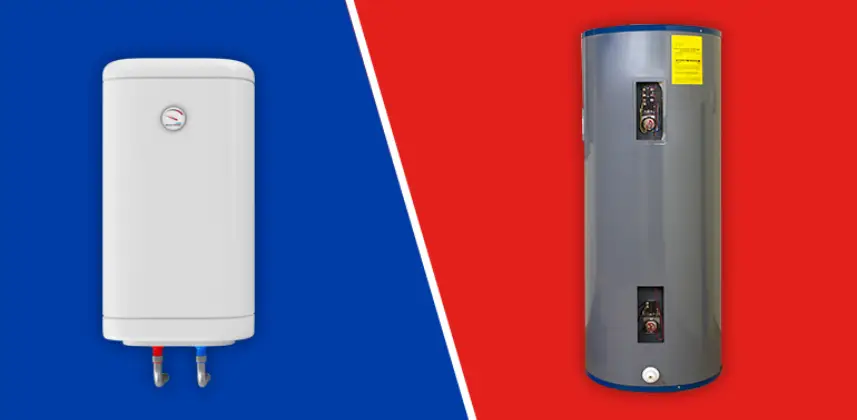
Selecting a water heater isn’t as easy as it used to be. Which is actually a great problem to have. Thanks to advances in technology, there are options for different budgets, energy sources, and household sizes. Modern water heaters are more efficient than older units, as well as longer lasting and easier to service. Let’s explore the different types of water heaters and find which one is best for your needs.
Tips for Buying a Water Heater
What may be best for your neighbors down the road isn’t necessarily best for you.
- What energy source do you have?
Gas water heaters use propane or natural gas to heat the water. Electric water heaters are plugged into your home’s power supply. Research the cost of these utilities in your area, and see which one is the most affordable. Your existing utilities should guide your choice. - How much hot water do you need?
Hot water heaters come in different sizes and are rated to supply a certain amount of gallons per hour (GPH). To narrow down your decision, ask yourself how much hot water you or your family need. Do you use water at an average rate, or do you need a little extra? - How much space do you have?
Traditional and hybrid hot water heaters take up a lot of space, whereas tankless water heaters are compact. Ask yourself where the water heater will be installed and how much room you have.
Finding the Perfect Hot Water Heater
Let’s break down the pros and cons of gas and electric water heaters:
Gas Water Heaters: These have a higher up-front cost and must be vented outside, but they are more affordable to operate long-term. Gas water heaters also have a higher recovery rate, which is the time it takes to reheat the water after it is depleted.
Electric Water Heaters: These are easy to maintain and install, but they cost more to run and have a slower recovery rate than gas. Electric water heaters are a better option for homes that do not already use gas for other appliances.
Water Heater Size Considerations
The size of the traditional hot water heater you need depends on the number of people in your home. Most manufacturers provide guidelines for their units. A family of four should typically look at a 50-gallon water heater or larger models.
Don’t just rely on the capacity of your water heater to determine if it is large enough. You should also look at the first-hour rating (FHR), which tells you how much water the unit will heat in a set amount of time. When you’re shopping for a new unit, ask about the FHR or consult this water heater size guide from the Department of Energy.
How to Choose a Tankless Hot Water Heater
Homeowners like tankless hot water heaters because they’re compact. They’re also more efficient since they do not keep a tank of hot water ready to go. They can deliver an endless supply of hot water for even the longest-shower takers. They come in both electric and gas models, so simply choose the one that’s most compatible with your home and your utility bills.
How to Choose a Traditional Water Heater
Once you’ve landed on the correct size of a traditional water heater, as explained above, the next matter to decide is which energy source to use. If other appliances in your home already use propane or natural gas, it makes sense to buy a gas water heater. Otherwise, electricity is a better option, since it can be expensive to install gas utilities for a water heater.
How to Choose a Hybrid Water Heater
Hybrid water heaters have a high up-front cost but are significantly more efficient than their counterparts. They have more moving parts, which can complicate maintenance, and they also require regular filter cleaning. They also require a drain, since they produce condensation. Finally, they require a lot of space. Hybrid water heaters are ideal for warmer climates or climate-controlled rooms, as they’re sensitive to extreme temperatures.
Point-of-Use Hot Water?
Point-of-use hot water systems deliver hot water to only one faucet or sink. They’re perfect for utility rooms, tiny homes, or areas of the home where running plumbing for hot water is cost-prohibitive.
Professional Water Heater Installation
Once you’ve found the right water heater, give Mr. Rooter® Plumbing a call for water heater installation. We’ll take care of all the necessary installation procedures and adhere to local building codes to ensure a reliable and efficient installation. Give us a call, or request a job estimate online.
This blog is made available by Mr. Rooter LLC, for educational purposes only to give the reader general information and a general understanding of the specific subject above. The blog should not be used as a substitute for a licensed plumbing professional in your state or region. Check with city and state laws before performing any household project.

